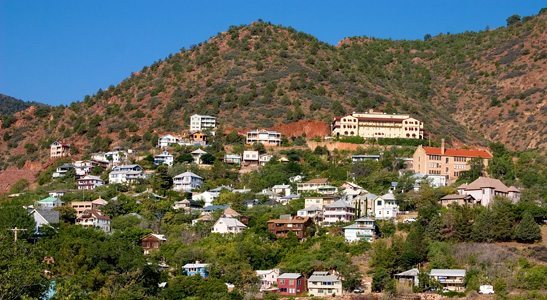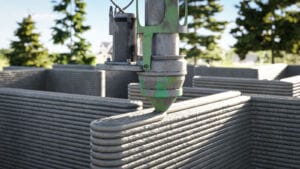Will rising interest rates cool our red-hot housing market? The answer is: It’s a chicken and egg dilemma. Here’s what you need to know.
READ ALSO: 5 Arizona housing market predictions for 2021
When interest rates go down buyer demand goes up. Why? More buyers can qualify for a loan to buy a home.
More buyers causes homes to sell faster, leaving fewer homes to buy. This limited inventory pursued by brisk buyer demand pushes home prices up.

Rising home prices are no problem provided interest rates keep going down so buyers’ house payments are affordable. But what if interest rates reverse and begin rising (as they now have)? Will this reduce buyer demand and dampen (maybe even reverse) home price appreciation?
The answer would appear to be yes, but it’s actually no, at least this time around.
To assess the market, and the future, it’s important to look at three metrics: rates, inventory, and appreciation.
Interest Rates
Interest rates have steadily declined since January 2019 (until recently). Below is an incremental six-month snapshot over the past two years:
January 2019: 4.37%
July 2019: 3.66%
January 2020: 3.52%
July 2020: 2.95%
January 2021: 2.85%

Housing Inventory
Housing inventory has fallen over the past two years. Here is a look at local and national numbers:
Arizona Homes For Sale (Cromford Report):
January 2019: 18,064
July 2019: 14,808
January 2020: 12,572
July 2020: 8,728
January 2021: 6,113
March 22 2021: 4,728

U.S. Homes For Sale (Redfin):
January 2019: 1,929,809
July 2019: 2,392,535
January 2020: 1,785,791
July 2020: 1,985,681
January 2021: 1,256,622
Home Appreciation
The perfect storm of low interest rates, high buyer demand, and low housing inventory have propelled home prices. This has been particularly true in Arizona, where we’ve had increasing buyer demand from folks who would rather live here than where they are (Can you blame them?). This has consumed available home inventory and skyrocketed prices.
Arizona Home Sale Price Appreciation (Cromford Report – year over year):
January 2019: 4.3%
July 2019: 5.6%
January 2020: 8.6%
July 2020: 12.6%
January 2021: 19.4%

Looking Ahead…
Interest rates have climbed about 0.75% since their low point in December 2020, when they bottomed at 2.68%. I predict they will continue to rise based on two factors.
Government is spending unprecedented amounts. To fund this the Federal government will need to raise taxes, borrow money, or both. It will do both. To borrow more, it will need to raise bond rates (it already has), which has and will continue to push up home interest rates.
Also, if you own a home you probably see appreciation as a good thing. However, the Fed sees fast climbing prices as the big ugly “I”…inflation.
An 8%+ annual rise in the cost of any “essential” consumer product (food, housing, transportation) is a no-no in the government’s eyes because it exceeds wage growth, meaning fewer people can afford what they need (food, housing, transportation).
So, in addition to driving up interest rates by increased borrowing (competing for money), the Fed will want to curb extreme housing inflation. Therefore, it won’t resist and will actually celebrate (privately) a rise in interest rates.
In the past this strategy has worked. But it won’t this time. Here’s why.
The Fed Will Fail
Interest rates have never fallen so fast or been so low. No doubt, rising rates will reduce the number of buyers. But it will also limit the number of homes on the market.
Why? A huge percentage of homeowners purchased or refinanced at super low rates. As rates rise they won’t sell without a compelling reason. They won’t want to pay a significantly higher rate on their next home.
So, while higher interest rates will keep some buyers from buying, those rates will also keep some sellers from selling. For the foreseeable future there will be more buyers than homes, meaning home values will continue to soar.
One last thing. If you don’t own a home and aren’t buying because you don’t want to compete in a bidding war, reconsider. Count on paying 10%-15% more for a home in next year’s bidding war, and a higher interest rate too.
Greg Hague is the CEO of 72SOLD. 72SOLD developed a way to sell a home in just 72 hours using an auction-like process that creates a competitive environment with buyers aggressively bidding against each other, driving up the sale price, netting 72SOLD sellers thousands more than if they sold the traditional way. 72SOLD’s home selling program has been featured on ABC, CBS, and NBC news, showcased in Forbes, and received several U.S. trademarks. Visit 72SOLD.com for more information.




